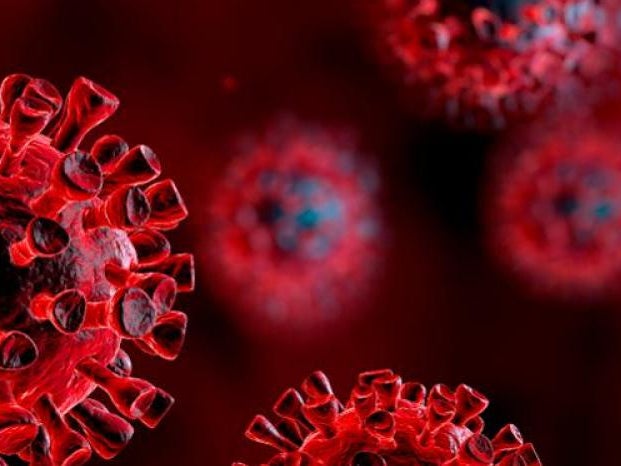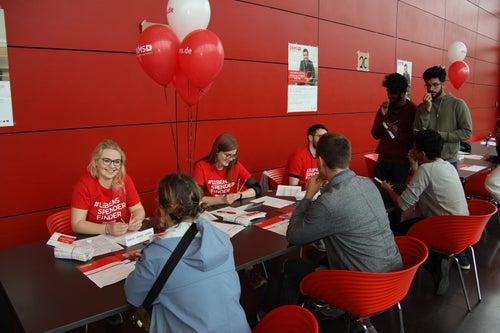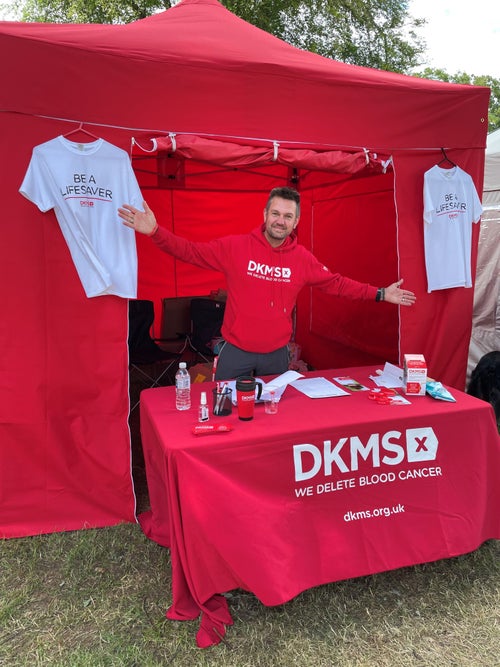
COVID-19 update for donors
We put the safety of our donors and patients at the heart of everything we do. That's why we have a plan in place to keep you and your patient safe if you are asked to make a donation during the coronavirus pandemic.
This page outlines what we are doing to minimise the effect of COVID-19 on delivering lifesaving blood stem cell donations from incredible people like you to those in urgent need.
If you are asked to make a blood stem cell donation, we will be with you every step of the way and are here to talk through any questions you may have. Your donation could be someone’s last chance, so thank you so much for continuing on your journey to saving a life.
What do you need to do?
In the lead up to your donation, we ask that you take extra precautions to reduce the risk of contracting coronavirus or coming into contact with someone with coronavirus. This is both for your own health and to minimise disruption to your planned donation.
Although many restrictions on social distancing in the UK came to an end in July, due to the nature of your donation, you will need to continue to adhere to comprehensive social distancing for 10 days prior to your donation. This will also apply for the period when you receive your G-CSF injections (if you are donating by the peripheral blood stem cell method). Government guidance can and does change, so please try and keep up to date with any announcements and we will try to notify you of any relevant updates as soon as possible.
What is comprehensive social distancing?
- HANDS: wash your hands regularly.
- FACE: wear a face covering at all times when mandatory, and indoors where social distancing may be difficult and/or you will come into contact with people you do not normally meet.
- SPACE: stay two metres apart from people not in your household or bubble wherever possible.
Also:
- Socialising: avoid socialising outside your home, e.g. in bars or restaurants, with people from outside your household or bubble. You can still see people indoors within your household or bubble. You can still visit the shops for essential purposes, but, where possible, limit your visits.
- Public transport: Limit your use of public transport to essential travel only, e.g. travelling to your medical assessment and donation. When travelling, always wear a face covering and aim to keep a distance of two metres from others.
- Work from home if possible: If you cannot work from home, your workplace must be COVID secure, meaning your employer has taken measures to ensure staff members are at least two metres apart.
If you have any questions or concerns about comprehensive social distancing, or you do not think this will be possible for the 10 days leading up to your donation, please speak to your DKMS coordinator as soon as possible.
What is DKMS doing to keep you safe?
The health and safety of our donors is our highest priority. We follow advice from Public Health England and review our policies and processes regularly. This guidance is also in line with that of the other partners in the UK aligned registry and we follow global guidelines from the World Marrow Donor Association.
It is possible that the hospital where you are donating may also be treating patients with coronavirus. While we cannot guarantee that you will not be exposed to coronavirus, every precaution will be taken at our stem cell collection centres to minimise the risk of exposure and to keep the area COVID-free, which includes staff wearing appropriate personal protective equipment.
At the collection centre, you will need to wear a face covering at all times and you may have your temperature taken on arrival. Due to hospital regulations, you are currently not allowed to bring a companion with you into the collection centre. We recommend you bring your phone and charger so friends and family can keep you company virtually.
Testing you for COVID-19
Before you donate, we will arrange for you to have a PCR test for COVID-19. The tests will take place at different intervals as follows:
- On the day of your medical assessment.
- Approximately 72 hours before you are admitted to the hospital for your donation
- On the day of your donation.
In some cases, you may also be required to have an additional COVID-19 test as well as the tests mentioned above, between your medical assessment and the donation. If this is the case, your DKMS coordinator will be in touch.
COVID-19 vaccinations
We know that many of our donors are eligible to be vaccinated and have already had one or both jabs. Your vaccination status is important in regards to your donation, and will have already been discussed with you by your DKMS coordinator. If there is a change to your vaccination status or your vaccination appointment dates, please contact your DKMS coordinator to let them know.
When to contact us
- If anyone in your household or place of work starts to show COVID-19 symptoms, or you are told that you have been in contact with someone who has tested positive, please get in touch with your DKMS coordinator as soon as possible.
- If you are offered a dose of the vaccine in between your medical assessment and your donation, please get in touch with your DKMS Coordinator as soon as possible as we may need to change your donation date in line with our medical guidelines on donating post-vaccine.
Please monitor your health for any COVID-19 symptoms. If you start to show possible symptoms, such as a cough, a high temperature, shortness of breath or loss of taste or smell you should:
- Stay at home and avoid close contact with other people.
- Use the NHS 111 coronavirus service to find out what to do next. Advice can also be found on the NHS website and the government website.
- Contact DKMS as soon as possible.
We know the ongoing coronavirus pandemic is a worrying time for everyone and that, even so, you’re doing something exceptional by donating your stem cells. Thank you so much for going ahead with your donation and, by following NHS and government guidelines, helping to keep yourself and your patient safe.


